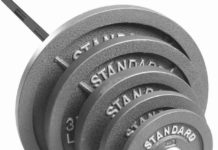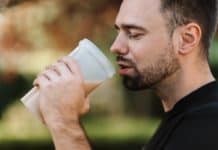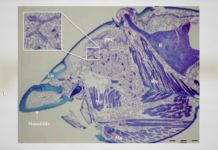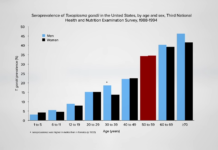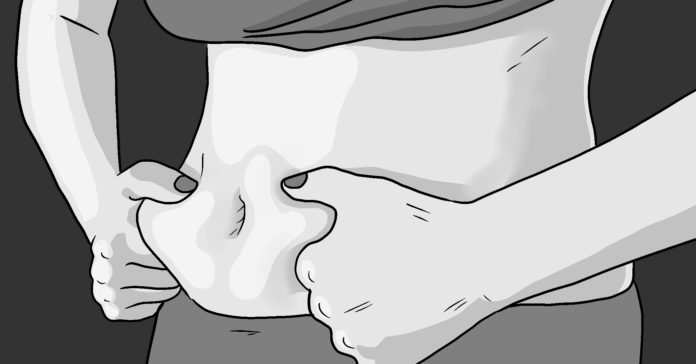Introduction to Polycystic Ovary Syndrome (PCOS)
Polycystic Ovary Syndrome (PCOS) is a hormonal disorder that affects many women and girls of reproductive age. Common symptoms of PCOS are irregular periods, excess hair growth on the chest and other areas of the body, weight gain, trouble conceiving, and the development of many small cysts in the ovaries. PCOS is a complex condition with many underlying factors, but can be managed holistically with healthy habits and treatments.
PCOS is most likely caused by a combination of genetic and lifestyle factors such as diet, physical activity, stress, and environmental exposures. It is estimated that up to 10% of women of reproductive age have PCOS, and it is one of the most common endocrine disorders in this population.
Mind-Body Connection
It is often said that the mind and body are interconnected and this could not be truer when it comes to managing Polycystic Ovary Syndrome (PCOS). PCOS affects our physical and mental health in a profound way. Therefore, it is important to understand how our physical and mental wellbeing are intertwined when it comes to managing PCOS.
Our bodies produce different hormones and neurotransmitters which affect how we think and feel. When these hormones are out of balance, due to PCOS or other factors, it can lead to distressful feelings including anxiety, stress, and depression. On the other hand, feeling stressed, anxious, or depressed can in turn cause further hormone imbalance and physical symptoms.
Therefore, it is essential to understand the importance of managing mental health alongside physical health for a successful recovery. This means paying attention to any signs of distress and taking steps to address them where necessary. Additionally, it is important to remember the power of positive self-talk and self-care practises such as relaxation techniques and mindfulness exercises.
Reasons behind Excess Belly Fat in PCOS
Polycystic ovary syndrome (PCOS) is a hormonal disorder that affects many women around the world and carries various health complications, such as excess belly fat. This can cause feelings of shame, insecurity, and lowered self-esteem.
It's important to understand why this happens and what scientific explanations we have on the connection between excess belly fat and PCOS. Research suggests that the excessive presence of male hormones in those with PCOS can lead to greater fat accumulation in the abdominal area.
In addition, one of the hormones that are normally released after eating, called insulin, is often elevated in those suffering from PCOS. This can lead the body to store more fat, particularly in the abdominal area.
Finally, changes in hormones associated with pre-menstrual syndrome can also lead to cravings for unhealthy foods and increased feelings of stress, both of which can contribute to excess fat around the belly area.
Overview of Diet & Exercise Tips
Exercise and diet are important components of managing Polycystic Ovary Syndrome (PCOS) related belly fat. Eating a balanced diet full of nutrient-rich foods and regular physical activity can help reduce excess fat and improve overall health. It’s also important to stay hydrated and get enough sleep, as both can have a positive effect on managing PCOS related symptoms. Here are some simple tips to get you started on the path to reducing belly fat.
- Make sure your diet is full of nutritious foods like fresh fruits and vegetables.
- Eat regular meals, allowing yourself time to digest properly.
- Avoid processed food and sugar as much as possible.
- Consume lean proteins such as fish, poultry, beans, and legumes.
- Incorporate physical activity into your daily routine. Aim for at least 30 minutes of exercise 5 times a week.
- If you're new to physical activity, start with low-impact exercises like walking, swimming, or yoga.
- Strength training is also beneficial, as it helps build muscle and burn fat.
- Increase your activity level gradually to avoid injury or burnout.
Dietary Guidelines
Achieving a balanced and nutritious diet is key when it comes to losing PCOS-caused belly fat. Healthy eating means avoiding processed or pre-packaged foods that are often filled with unhealthy artificial ingredients. Eating regular meals rather than skipping them also helps maintain your energy levels and avoid crash-eating later on. Additionally, it is important to be mindful of your sugar intake, as too much sugar can cause weight gain, upset hormones, and lead to inflammation.
Below are a few tips for building a healthy diet that will lead to successful fat loss:
- Make sure to include a variety of fresh fruits, vegetables, lean proteins, low-fat dairy products, whole grains, healthy fats, and limited processed foods.
- Focus on portion control and pay close attention to serving sizes and types of food consumed.
- Cut back on sugary drinks and focus on drinking more water.
- Include healthy snacks between meals to ensure that your body is receiving the fuel it needs.
Stress Management Strategies for PCOS
It is no secret that living with PCOS can be extremely overwhelming and stressful. Stress management strategies are an important factor in maintaining a healthier lifestyle and controlling belly fat caused by PCOS.
To manage stress, it is important to make time for activities that will help you relax and unwind. This could be anything from taking a warm bath, going for a hike or reading a book. Exercise can also be very effective in relieving stress, as it helps release endorphins which can improve mood and promote better sleep.
Meditation is another great way to manage stress. Mindfulness meditation helps to focus on the present moment, bringing clarity and awareness. Research has shown that it can also reduce anxiety and depression associated with PCOS.
Support from friends and family is also key in managing stress. Social support promotes emotional and physical well-being. Talking about your feelings can help to relieve the stress caused by PCOS and help you to come up with ways to better manage it.
Overall, there are multiple ways to help manage the stress associated with PCOS. It is important to find what works best for you and to remember that self-care is of utmost importance when dealing with PCOS.
Tips for Physical Activity
Physical activity is an important part of managing PCOS and its related complications, including excess belly fat. Strength training, aerobics, yoga, and pilates are all activities to consider incorporating into your routine. Strength training is effective at helping build muscle mass, while aerobic exercise helps to improve cardiovascular health — both of which are important for keeping your body healthy and reducing abdominal fat.
Yoga and Pilates can help to reduce stress levels, something which is often associated with PCOS. Additionally, these disciplines can help to increase flexibility, improve posture, and promote better blood flow throughout the body. Finally, any type of physical activity will have a positive effect on mental health, making it easier for you to manage your thoughts and emotions associated with PCOS.
Life Balance
Living with PCOS can be difficult and overwhelming. It is important to make time for self-care and prioritize emotional well-being for optimal health. Small lifestyle changes such as getting enough sleep, taking leisure activities, and setting aside some “”me time”” can go a long way in managing PCOS and its related symptoms.
Creating a balanced life does not always come easy; it requires dedication and hard work, but it is possible. Setting specific goals and having an action plan can be helpful in achieving balance. Make sure to prioritize positive activities, get rid of any negative influences, and seek professional help when needed.
Overall, leading a healthy lifestyle is a key factor for healing and managing PCOS. Staying connected to your body and being mindful of what it needs is the best way to achieve this.
Alternative Therapies
Many people with PCOS have found alternative therapies to be beneficial in managing their symptoms, including belly fat reduction. Acupuncture has been shown to reduce the production of androgen hormones, which can contribute to the intensity of PCOS symptoms.
Massage therapy can help reduce stress, alleviate muscular pain, and improve blood circulation, all of which in turn may help balance hormones and reduce excess abdominal fat.
Herbal remedies are another helpful tool to address the symptoms of PCOS. Herbs such as saw palmetto and licorice root help to reduce androgen levels in the body while providing additional nutrition.
It is important to remember that the safety and effectiveness of these therapies vary greatly based on individual medical history, so it is important to talk to a healthcare provider before beginning any alternative treatments.
Supplementation
Supplementation may be an important part of managing PCOS and reducing belly fat. While some practitioners may suggest natural supplements, it is always best to discuss any supplement use with your doctor prior to taking them. Some common supplements that may help with PCOS include:
- Vitamin D3
- Magnesium
- Probiotics
- Zinc
- Omega-3 fatty acids
These supplements may help regulate hormones, reduce inflammation, and reduce stress levels. It is important to note that these supplements may have different effects on each individual and their effectiveness may vary.
Self-Reflection
Self-reflection is an important part of understanding one's relationship with PCOS and their body. By taking the time to think about your thoughts, feelings, and behaviors surrounding PCOS, you can gain a better understanding of yourself and your health. Self-reflection can help you identify any unconscious patterns that may be impacting your health, weight, and overall well-being. Taking the time to reflect on how you are feeling and how you have been managing your PCOS can help you come up with strategies to better manage your symptoms.
This self-reflection can take many forms, such as journaling, meditating, or talking with a trusted person. Acknowledging and accepting your emotions is essential in order to make positive changes in your life. By reconnecting with your authentic self, you can create more meaningful and lasting changes. Remember that self-reflection does not have to be a solo activity; there are plenty of PCOS support groups that can provide a safe space to discuss feelings and experiences.
Conclusion
When it comes to understanding PCOS and managing belly fat, a holistic approach is essential. That means taking into consideration the many aspects of your life such as diet, exercise, stress management, supplementation, alternative therapies, and self-reflection. Every person's body is unique and different factors have various effects on individuals, so finding the combination that works best for you is a process that requires patience and persistence. But with the right resources and support, you can achieve your goals and live a healthier and more balanced lifestyle while managing your PCOS.
“

